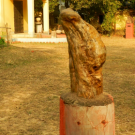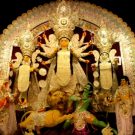
Rabindranath Tagore: The Vivified Vision of Nature in Art
The Magnificence of Nature… Nature, the inexhaustible treasure trove of creativity, generated inspirations from the very onset of human civilization. Any visual culture is read, realized and recognized in the context of its land of origin, i.e geographical as well as the social environment. Society and culture are interwoven with nature, and art in its manifold forms, mediums and expressions represents such issues and realizations of our daily existence. Read more



